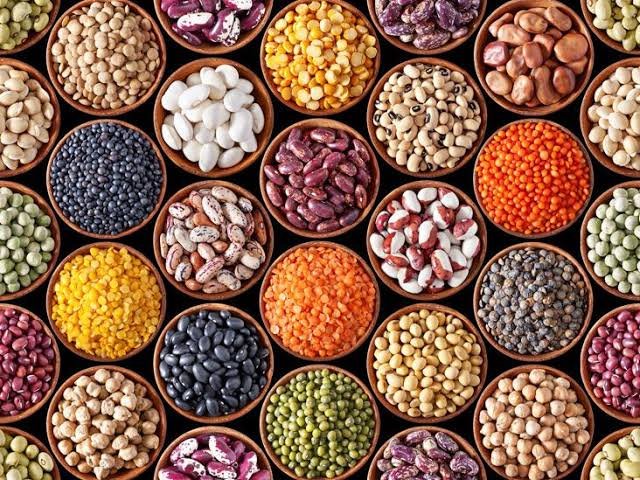Are you a vegetarian or considering making the switch? One important nutrient to keep an eye on is iron. This essential mineral plays a key role in your body’s overall health, including producing red blood cells and transporting oxygen. In this blog post, we’ll explore iron vegetarian food foods, why iron is crucial, and how to ensure you’re getting enough of it in your diet. Let’s dive in!
Why Is Iron Important?
Iron is vital for several reasons:
- Energy Production: It helps your body convert food into energy. Without enough iron, you might feel tired or fatigued.
- Red Blood Cell Formation: Iron is essential for creating hemoglobin, the protein in red blood cells that carries oxygen throughout your body.
- Immune Function: Adequate iron levels help support your immune system, keeping you healthy and strong.
Types of Iron
There are two types of dietary iron: heme and non-heme.
- Heme Iron: Found in animal products, it’s more easily absorbed by the body.
- Non-Heme Iron: Found in plant-based foods, it’s less readily absorbed. However, with the right combinations, you can maximize your intake!
Iron-Rich Vegetarian Foods
Now, let’s get into some delicious iron-rich vegetarian foods that you can include in your diet:
1. Legumes
Legumes are a powerhouse of iron and other nutrients. Here are some top choices:
- Lentils: Cooked lentils provide about 3.3 mg of iron per 100 grams. They’re versatile and can be added to soups, salads, or made into lentil burgers.
- Chickpeas: Also known as garbanzo beans, chickpeas contain about 2.9 mg of iron per 100 grams. Toss them in salads, blend them into hummus, or roast them for a crunchy snack.
- Kidney Beans: With around 2.9 mg of iron per 100 grams, kidney beans are great in chili or mixed with rice.
2. Seeds and Nuts
Seeds and nuts are not only delicious but also packed with iron.
- Pumpkin Seeds: These little gems contain about 3.3 mg of iron per 100 grams. Sprinkle them on salads or enjoy them as a snack.
- Hemp Seeds: Offering around 7.95 mg of iron per 100 grams, hemp seeds are great in smoothies or as a topping on yogurt.
- Almonds: With about 1.0 mg of iron per 100 grams, almonds are a tasty and healthy snack.
3. Dark Leafy Greens
Don’t forget about those greens! Dark leafy vegetables are not just good for your health—they’re also a good source of iron.
- Spinach: Cooked spinach has about 3.6 mg of iron per 100 grams. Add it to your smoothies, stir-fries, or salads.
- Kale: With approximately 1.5 mg of iron per 100 grams, kale can be used in salads, soups, or as baked chips.
- Swiss Chard: This colorful veggie contains about 1.8 mg of iron per 100 grams and is great sautéed with garlic.
4. Whole Grains
Incorporating whole grains into your meals can boost your iron intake as well.
- Quinoa: With about 1.5 mg of iron per 100 grams, quinoa is a complete protein and works well in salads or as a side dish.
- Oats: A breakfast favorite, oats contain about 4.3 mg of iron per 100 grams. Enjoy them in oatmeal or baked goods.
- Brown Rice: With approximately 0.4 mg of iron per 100 grams, brown rice is a healthy base for various dishes.
5. Fortified Foods
Many cereals and plant-based milk are fortified with iron. Always check the labels to see how much iron they provide.
Tips for Maximizing Iron Absorption
To get the most out of your iron-rich foods, try these tips:
- Pair with Vitamin C: Consuming vitamin C-rich foods, like oranges, strawberries, or bell peppers, alongside your iron sources can enhance absorption.
- Avoid Certain Drinks: Try to limit tea and coffee during meals, as they contain compounds that can inhibit iron absorption.
- Cook in Cast Iron: Using cast iron cookware can increase the iron content of your food.
Conclusion
Ensuring you get enough iron as a vegetarian is entirely possible with the right foods and combinations. By including a variety of iron vegetarian food in your diet, you can keep your energy levels up and support your overall health. Remember to pair iron sources with vitamin C and pay attention to your cooking methods for the best absorption.
FAQs
1. How much iron do I need daily?
Adult men need about 8 mg, while adult women require 18 mg daily. Pregnant women need even more, around 27 mg.
2. Can I get enough iron from a vegetarian diet?
Absolutely! Many vegetarian foods are high in iron. Just make sure to include a variety of these foods in your meals.
3. What are the symptoms of iron deficiency?
Common symptoms include fatigue, weakness, pale skin, and dizziness. If you suspect a deficiency, consider consulting a healthcare professional.
4. Are there any supplements for iron?
Yes, iron supplements are available, but it’s best to consult with a healthcare provider before starting any supplements.
With this guide, you’re now ready to explore the world of iron-rich vegetarian foods and fuel your body in a healthy way. Enjoy your meals!
visit for more Blogs chiangraitimes

